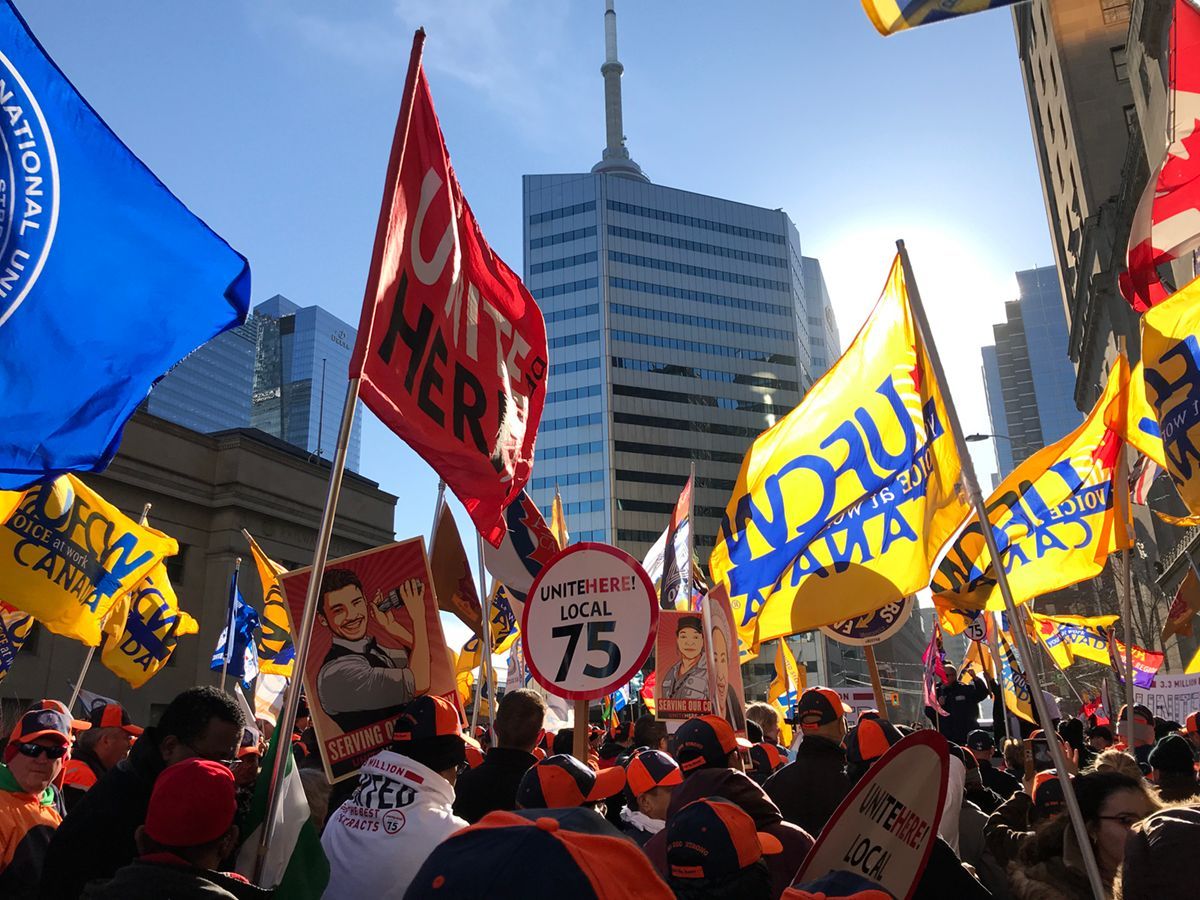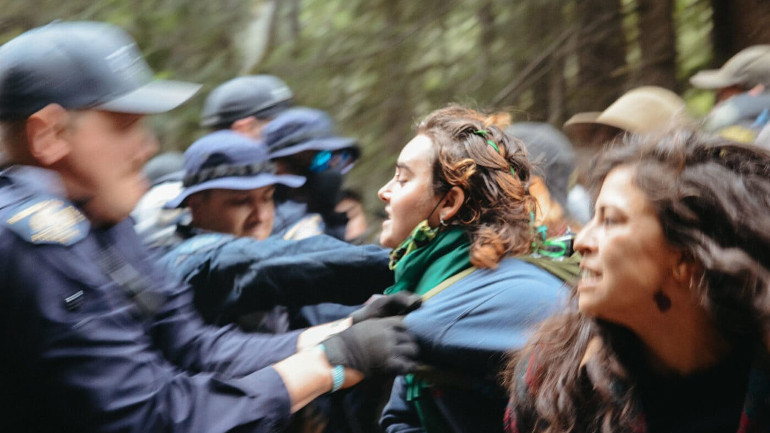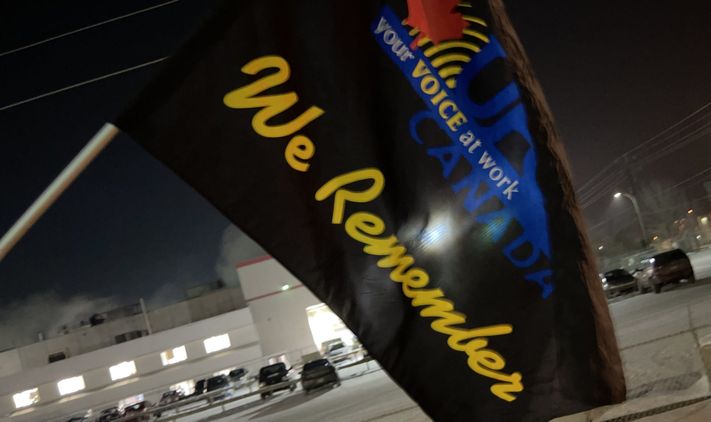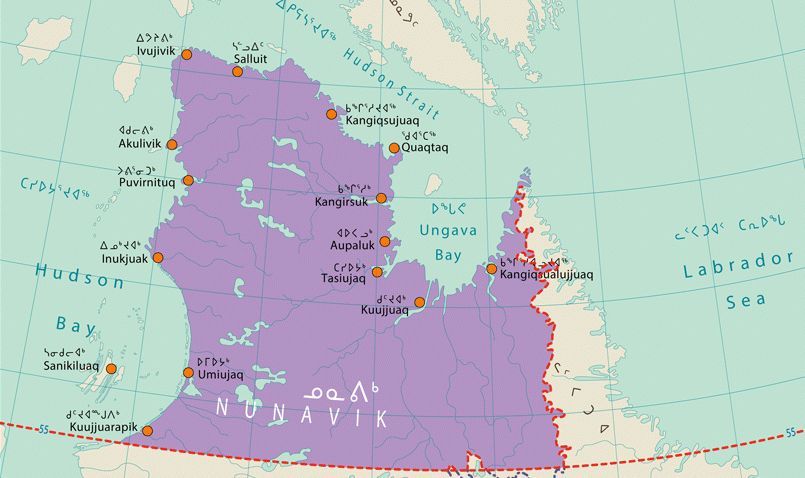Canada enters 2020 with growing instability. The Federal election raised more questions than it settled. Tensions between provinces are increasing. The economy is slowing down as the world faces a new recession.
The Liberals held their own in Ontario and Québec, exploiting dislike of Doug Ford and fears of Scheer’s right-wing policies, and managed to remain the largest party. However, now a minority government, they are weakened and less able to deal with the tensions and crises that are looming.
Right-wing populism, both Ford’s in Ontario and Maxime Bernier’s People’s Party, was dealt a blow. The Tories failed to make significant gains outside of western Canada; 71 of their 121 seats, 59% of the total, are from these four provinces that have just 31% of the population. The Tories’ poor performance forced Scheer’s demise as leader.
The Greens finished with three seats, up from one in the last election, but well below expectations.
Only the Bloc Québécois were winners in the election, coming from almost nowhere to 32 seats. The victory of the right-wing Coalition Avenir Québec (CAQ) in the province in 2018 on a program of nationalism and identity politics opened a door to a rebirth of the Bloc. The CAQ’s high profile legislation that bans the wearing of religious symbols for many public employees, was echoed by the Bloc. It focused on Francophone identity and strong Québec nationalism within the Canadian state, rather than pushing for sovereignty as they did in the past.
With the Tories widely disliked and the Liberals much tarnished, the New Democratic Party (NDP) should have been soaring. Yet, only in the last few weeks of the election did the NDP gain ground in the polls as Jagmeet Singh started to campaign with policies to significantly improve and extend public healthcare, tax the super-rich and corporations, and make university more affordable. However, the NDP started from a very low base, having been almost invisible for the previous four years. In 2011, the NDP won 103 seats, 59 in Québec. It failed to consolidate a base in Québec, and in 2015 it dropped to 44 seats in Canada, with 16 in Québec. In 2019, it dropped again to only 24 seats, with 1 in Québec.
A Country Divided
The election revealed a sharply divided country. The reemergence of the Bloc shows the nationalist aspirations of many Quebecers are strong while in western Canada, with the Tories having virtually a clean sweep, there is deep alienation even if talk of “Wexit” is exaggerated.
This will see the provinces jostling for more resources, both from the Federal government and each other. After the election the Bloc and CAQ are confident to defend their interests and push for resources.
There is real pain in Alberta; however, the cause is neither Trudeau nor environmentalists. The root cause is Alberta’s over-dependence on resources, especially oil and gas, and the provincial government’s failure over decades to use the oil wealth to diversify the economy. Oil prices dropped in 2014 and are unlikely, unless there is a Middle East war, to return to their previous highs.
A new pipeline will not raise the price of bitumen, given its higher cost of refining and shipping, up to the level of crude oil or back to pre-2014 levels. Instead it locks Alberta into future dependence on oil as the world transitions to renewable energy.
Kenny seeks to divert blame onto Trudeau, but it is his government that has cut taxes on big business by $4.5 billion and at the same time reduced the minimum wage for young people, attacked public sector workers’ pensions and wages, and slashed 7,000 jobs, many in the public health service. Alberta’s woes are largely home grown or due to the world economy.
Economic outlook
At the end of 2018, Canada looked to be heading towards recession. Then, over the first nine months of 2019 there was further growth in employment and a small up-tick in wages – both of which helped Trudeau secure a second term.
However, there are looming clouds for the Canadian and world economy. Most Canadians are up to their ears in debt, owing 176% of their income. Personal insolvencies are the highest level since the 2009 recession. 47% of Canadians do not expect to get through the next year without taking on more debt.
The housing boom has fuelled much of the recent economic growth, but there is a large bubble in housing, especially in Toronto and Vancouver, that may yet burst. From PEI to Vancouver and most places in between, housing is unaffordable. The OECD found that Canada has the highest housing costs compared to income of any country.
Much of Canada depends on exporting resources and in a recession demand for these raw materials will shrink. Investment by Canadian businesses has dropped 20% over the past five years, the worst performance in more than five decades.
Fighting back
On top of the uncertain economic news, several provincial governments are engaged in austerity policies and attacks on public sector unions. Ontario’s Ford government has cut services and is going after teachers and education workers. Workers are striking to defend public education and their jobs.
Kenny’s attacks on workers and gutting health care, education, and other vital public services has provoked widespread anger and a sharp loss of support, with majority (53%) disapproval of the government. Union leaders have openly discussed the possibility of a general strike in response to these cuts.
In BC in 2019, there was a rash of labour disputes, generally unconnected, but having a common theme of workers being frustrated at wages not keeping pace with the rising cost of living.
In September 2019, over 1 million Canadians marched for climate justice. No government, federal or provincial, has policies to significantly shift Canada from fossil fuels to renewable energy. 2020 could see a rise in labour militancy and climate action across Canada.
A Socialist Alternative
The NDP thinks it can manage capitalism better than the other parties. However, economic crises and ecological disaster are not management failings, they are rooted in capitalism. The looming world recession and the global ecological crises means that managing capitalism is not an option.
The NDP, if it is going to effectively represent Canadian workers, needs to realize that it has to campaign all year round in communities and workplaces across the country.
A Canada Revenue survey found that only 28% believed wealthy Canadians pay their fair share and only 27% believed corporations in Canada were paying an appropriate amount. After decades of tax cuts for the wealthy, taxing the rich would be popular and socially fair. The path to winning elections is bold socialist policies that would give hope to workers, including in the resource industries, of good jobs based on a just transition to clean energy paid for by the rich, not workers.
A recent report from Statistics Canada found that Canadian corporations held a staggering $353 billion in tax havens in 2018. This, if taken into public ownership, would fund huge investment in renewable energy, the upgrade and insulation of homes and buildings, and provide good public transit in cities and between cities and towns – all of which provide good jobs.
Many Canadians are alienated from present society. An Ipsos poll released in September found that 67% of Canadians think the economy is rigged for the rich and powerful and 61% agree that traditional political parties don’t care about people like them. These views can feed support for either right-wing populism or bold socialist ideas. Another study found that 58% of Canadians have a positive view of socialism.
There is an opportunity for a confident and campaigning left-wing party. Socialist Alternative members are working hard to win support for socialist ideas. If you are interested, join us!




